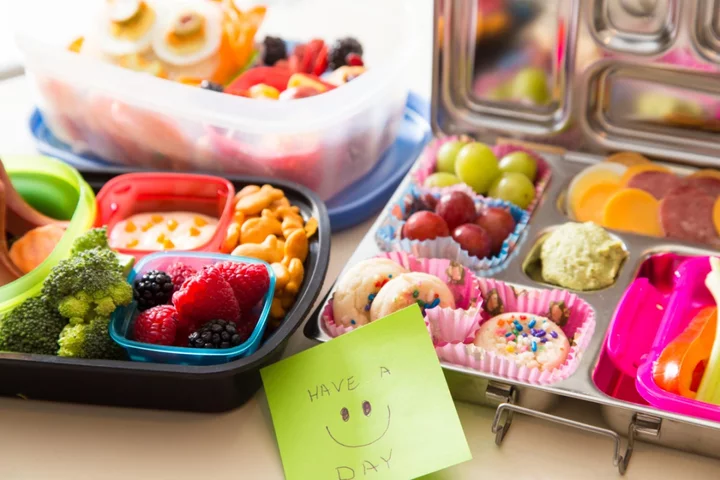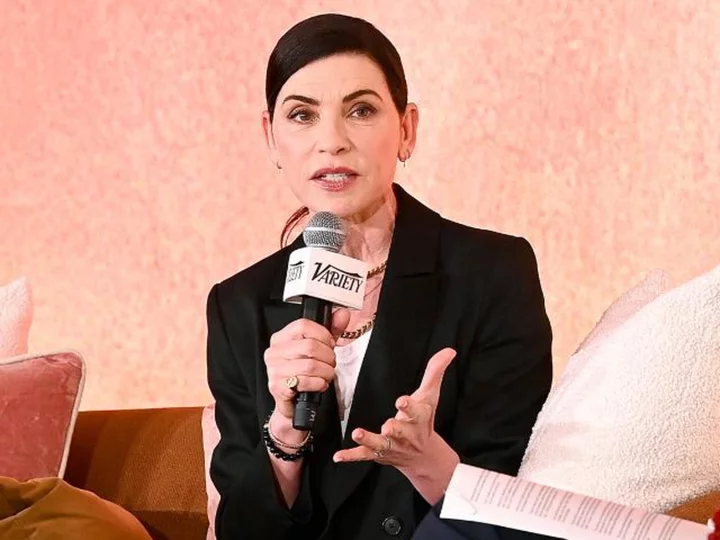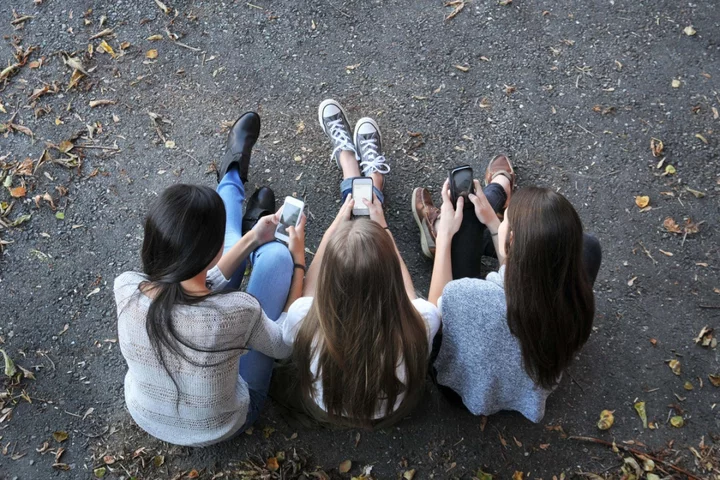
Call The Midwife ‘should come with a health warning’
Popular TV show Call the Midwife needs a health warning, academics have said. Experts from King’s College London and the University of Liverpool said television programmes showing “inaccurate birthing practices” should require safety recommendations for viewers to avoid misinterpretations by the public. Researchers analysed 87 births shown in 48 episodes of BBC’s Call The Midwife, This Is Going To Hurt and Channel 4’s One Born Every Minute. They compared how the depiction of these births compared to modern guidelines from the National Institute for Health and Care Excellence (Nice). The births largely compared favourably to modern care guidance, the authors found. We saw too early cord clamping in most televised births but no programme informed viewers about the safety aspects Prof Susan Bewley But a third of the time depictions of midwives and doctors clamping the umbilical cord were shown inaccurately or dramatised, according to the paper which has been published in the journal JRSM Open. Researchers said that without a safety warning to inform viewers otherwise, the general public and healthcare professionals could think the clamping practices they see are correct. Nice guidance states that women should not have the umbilical the cord clamped earlier than one minute after the birth unless there is concern about cord integrity or the baby’s heartbeat. But the academics found that in 21 instances clamping appeared to happen immediately or too early. Susan Bewley, professor emeritus of obstetrics and women’s health at King’s College London, said: “Millions of viewers watch programmes like Call The Midwife every week to be entertained but the line between fact and fiction is blurred. “We are impressed that UK television shows have accurately depicted some changes in childbirth over the last century, but on the other hand they have also provided the public with a picture of poor-quality care when it comes to clamping during childbirth. “These inaccurate depictions could influence how people see real-world care. “We saw too early cord clamping in most televised births but no programme informed viewers about the safety aspects. “When showing outdated practices, broadcasters have a public health duty to inform viewers that this immediate medical intervention is no longer recommended. No broadcaster would show the sleeping positions associated with cot-death without comment.” Andrew Weeks, professor of international maternal health at the University of Liverpool, added: “Health professionals know that midwives and doctors should not interrupt the flow of blood to the newborn baby nor separate the mother and baby without a pressing reason, and yet this is what is being shown on popular television programmes as common practice. “Incorrect depictions like this, however routine, can lead to misinterpretations of correct practice by the public. “This illustrates the need for safety recommendations when TV dramas show birthing practices and procedures that are outdated and inaccurate.” A spokesperson for Call The Midwife said: “Call The Midwife is a drama, not a documentary, and is set half a century ago. “It is highly accurate to the period it depicts, and shows how childbirth has changed radically over the years.” The study was published as the charity Lullaby Trust, which raises awareness of sudden infant death syndrome (SIDS), highlighted infection prevention among newborns. It said that parents should avoid letting other people kiss their baby and should always ask people to wash their hands before touching a newborn. “Even infections that cause mild symptoms such as a common cold in adults and older children can be life-threatening for babies,” said charity chief executive Jenny Ward. Read More Halloween: 10 wicked ways to kit out your haunted house Black magic: Go back to black this season with the catwalk-inspired trend How to prep your home for when the clocks go back Menopause campaigner Mariella Frostrup: ‘I look forward to a future where women gradually stop feeling so ashamed’ More girls miss school and college due to their periods than colds, survey finds More girls miss school and college due to their periods than colds, survey finds
2023-10-19 16:53

My kids don’t have sushi in their packed lunches – does it make me a bad mother?
I’m standing outside my local cafe in west London, looking bedraggled as I’ve been up since 6.45am making the dreaded school packed lunch. It’s nothing exotic – margherita pizza for Lola, who is a fussy eater, and plain pasta with cheddar cheese and corn on the cob for Liberty. There were all the snacks to pack, too – sadly, no chunks of carrot, just Pom-Bears and breadsticks. I am buying a croissant to add to one of the lunch boxes when I bump into the mum of one of my daughter’s friends. “Oh darling,” she tells me, “it’s all ‘white food’. Not good.” I shrug my shoulders knowingly, then stupidly ask her what’s in her kids’ packed lunches. “Sushi bento box,” comes her instant reply. “Crudites and organic hummus. Japanese panda crackers. Seaweed crackers. Dim sum. Oh, and sandwiches cut into little shapes – I do hearts and stars.” Right. That’s a good start to my morning; I now feel totally inadequate. When it comes to my children, I am a slave to the packed lunch. But gone are the days of stuffing a hard-boiled egg, a jam sandwich or processed cheese triangles into a box – as was the case when I was a child. Even apples have been voted a prehistoric lunchbox item by 17 per cent of parents. Instead, packed lunches are now a status symbol. The actor Hilary Duff, for instance, gives her son caviar for a snack – and it’s not that unusual. One in 10 parents (9 per cent) choose sushi and, according to a recent survey by Amazon Fresh, 26 per cent of parents take a photo of their children’s packed lunch for Instagram. A third (33 per cent) have also admitted they’ve taken a sneak peek inside another child’s lunchbox – and believe me, it’s often to silently snack-shame another parent. I can’t help but wonder if food and snacks are a kind of modern litmus test of parenting. But does it really make you a better parent if you give your child home-cooked wild keta salmon and wholemeal rice in a thermal container for lunch? The playground politics of packed lunches are complex. Parents are constantly criticised for sending inappropriate lunches to school. The TV chef Jamie Oliver once said unhealthy packed lunches are tantamount to child abuse. At the other extreme, parents are finding the time to stamp cucumbers with flowers and dice dried herbs into them for their kid’s bento boxes – then post them online. There seems to be no middle ground. Christina (not her real name) is a 40-year-old PA and tablescaping specialist whose child attends a prep school in west London’s Notting Hill. She makes all of her daughter’s packed lunches from scratch, and it’s always organic produce. “I always wanted to go that extra mile,” she tells me. “My motivation to do this was never to be ‘Queen Bee mum’ – it was to make my daughter happy and proud of me.” The “presentation” and “the taste” of the packed lunches, she says, is “super important” – to such an extent that it needs to be “Instagram-worthy” and “fun” in order to encourage her daughter to eat healthily. One of her lunch box specialities, she adds, is mini American hot dogs “decorated with a little flag and a drizzle of ketchup”. “I know it is always going to be flagged by other mothers because the school is very competitive,” she continues. “This dish goes around the mums like wildfire because mums always want to outdo other mums.” If I put out a post saying how much fibre children should be having, I get people replying saying that ‘it’s unrealistic’ and ‘we can’t do that as well as everything else’ when it comes to kids’ foods. It ends up with parents pitting themselves off against one another with food Charlotte Stirling-Reed, child and baby nutrionist While school playground rivalry among parents used to be about pigtails and bows in your children’s hair, Christina says, now it’s about lunch and snacks. “Kids have a much more sophisticated palate,” she explains. “They’re exposed to a lot more than a ham and cheese sandwich. The playing field has widened, and the bar has been set higher due to social media, and Deliveroo and Uber Eats – everything has become more instantaneous.” For other parents, it’s about making a packed lunch as wholesome as possible – something my children would scoff at. Ella Mills, the founder of the plant-based food brand Deliciously Ella, tells me she has found “batch cooking” easiest for her daughter’s packed lunches at nursery. “It’s a real rush getting everyone dressed, ready and out of the door each morning,” she says. “Plus, thinking of something to cook at 7am that’s got no nuts, no sesame in it [due to possible nut allergies], that I’ll know they’ll eat, and that doesn’t take a little while to make. So I make huge batches of veggie bolognese, bean chilli or sweet potato and chickpea stews plus big batches of grains, then simply heat a portion up and pop it in a thermos. Something that’s pre-made makes a world of difference.” Other parents call in the professionals. Chef Meryem Korkut Avci of Mary’s Mobile Chef Services does “meal preps” for elite customers in west and north London. She sends over an ingredients list and will then come to your home once a week and cook for the whole family – a two-hour session is £120 for six dishes (on the seventh day, her clients usually get a takeaway). For packed lunches, she says gluten-free muffins are popular. “Also egg or chicken fried rice, chilli con carne with tortilla, little mini puff pastry rolls with cheese – or sausage rolls.” She’ll even wash up – and says clients use her because “they don’t have time” or are “bored of their own food”. Dr Megan Rossi, a gut health scientist, bestselling author and founder of the website The Gut Health Doctor and The Gut Health Clinic in London, says an ideal packed lunch would contain something from each of the super-six plant groups: “Legumes (such as chickpeas), vegetables, whole grains (such as oats and barley), fruit, nuts and seeds and herbs and spices. Hitting all these is a tricky one but for optimal health, the goal is for them to have at least one from each of these most days. It’s a great target to have in mind!” She advises “hiding legumes and whole grains in sweet treats like black bean brownies with porridge oats,” and says that “while not a long-term strategy to keep plants a secret, it can help build some confidence and comfort with those plants (as well as training childrens’ taste buds) for you to reveal when the time is right.” For chocolate lovers – like my daughter, Lola – Dr Rossi also suggests “making your own chocolate bars with dried fruits, popcorn, seeds and nuts included for extra dietary fibres and a more satiating treat”. I personally can’t see how I would fit that into my schedule. But for many parents healthy eating is a full-time job. Children may need to be offered a specific food “around 10 times” before they accept it, according to research, while Dr Rossi adds that it means nothing to a child if you merely tell them food is healthy or unhealthy. “Try explaining to them from a young age about the importance of their gut microbes,” she says. “Tell them they need to feed the little pet bugs in their tummy with broccoli, for instance, to help keep them strong.” I often feel ashamed that Lola is a fussy eater – though I find solace in the fact that her younger sister isn’t. Dr Rossi claims that what mums-to-be eat during pregnancy may also affect the kind of food your child will have a taste for. “That could play a part with fussing eating,” she says, but adds that she’s not keen on “mum guilt”: “Pregnancy is hard enough without the added pressure of nutrition.” Charlotte Sterling-Reed, “The Baby and Child Nutritionist”, runs a fussy eater course, and assures me that “parents are not bad parents if they are struggling with a fussy eater at home”. She says she is currently witnessing a backlash from “defensive parents” who are fed up with being told to live up to the “ideal” of being a perfect parent. “If I put out a post saying how much fibre children should be having, I get people replying saying that ‘it’s unrealistic’ and ‘we can’t do that as well as everything else’ when it comes to kids’ foods,” she says. “It ends up with parents pitting themselves off against one another with food.” An extravagant lunchbox is also not realistic for the majority of parents, she adds, “whether working or not, and nor should it be – there is a way to find a balance”. She says that a middle ground is possible. “As parents, [we can] pick something that is balanced but that also works for the family situation. This constant comparison between two extremes on social media makes us feel like we are failing in multiple aspects of parenting.” I don’t think I’m ever going to be posting my kids packed lunches on Instagram. I also know that sliced pepper fingers won’t get eaten even if I arrange them in the shape of a smiley face. More than anything though, I won’t feel guilty about my kids’ food habits any more, or the lengths I sometimes go to to get them to eat healthy – I once told my daughters that if they didn’t drink their freshly squeezed orange juice, their legs would fall off. And, you know what, it worked! Read More Keir Starmer is keeping his children out of the public eye – but that won’t stop them being privileged I’m a jellyfish parent – my run-in with a tiger mum was terrifying Kate Moss credits her stress-free life to ‘moonbathing’ – can eccentric wellness regimes help me too? Vasectomy and British men in their twenties: ‘Young, none and done’ Why taking a mental health day could be bad… for your mental health What the world’s happiest children tell us about where Britain is going wrong
2023-10-19 13:53

Sure looks like Diamondbacks fans gave up on the NLCS
Prices for Arizona Diamondbacks tickets are surprisingly low, which isn't a good sign for team morale heading into Games 3, 4 and 5.
2023-10-19 05:59

Juliana Margulies urges more of the entertainment industry to stand up against antisemitisim
Julianna Margulies is feeling "disheartened" that more people in the entertainment industry aren't speaking out against antisemitism.
2023-10-19 04:00

Merrill Kelly sounds like a man who knows he poked the wrong bear in Philly
After his Diamondbacks came out on the wrong end of a 10-0 thrashing at the hands of the Phillies, Merrill Kelly tried in vain to walk back previous comments about the Citizens Bank crowd.
2023-10-19 02:47

Phillies Fan On the Field Gets Completely Destroyed By Stadium Security
Look, running out onto the field at a Major League Baseball game is always a no-no and trespassing onto that carefully manicured grass comes with significant ri
2023-10-18 21:26

Graham Nash sells songwriting catalogue to Irving Azoff's Iconic Artists Group
Graham Nash aims to bring his music to "new generations" with his deal.
2023-10-18 17:29

Millie Bobby Brown cries over Instagram beauty pictures
Millie Bobby Brown has admitted she often cries over Instagram beauty pictures because she fears she will never look as perfect as the people she sees online
2023-10-18 16:21

Menopause campaigner Mariella Frostrup: ‘I look forward to a future where women gradually stop feeling so ashamed’
Mariella Frostrup said she looks forward to a future where women “stop feeling so ashamed” of their bodies. The broadcaster, author and former Observer agony aunt, who has been known for her work as a menopause campaigner over recent years, also said “the world is not changing fast enough” when it comes to awareness and support for women’s health experiences. “[There has been] centuries of misinformation and misunderstanding that’s gone on around menopause. You have to look to history to see where we’ve ended up – and then in a more optimistic vein, look forward to a future where women gradually stop feeling so ashamed,” Frostrup, 60, told the PA news agency. “I mean, everything to do with women’s bodies has been a source of shame. I remember as a teenager, I was hiding my Tampax underneath cereal packets when I went to the shops to buy them, because I was so ashamed of the fact I was having a period. “You look at young people today, and I just love it when young women will announce to a roomful of people, ‘Oh, I’m on my period’. That is a great indication of the sort of liberation we need to experience around our bodies.” Frostrup, who wrote an advice column for the Observer for a decade and joined Times Radio as a presenter in 2020, co-authored the 2021 book Cracking The Menopause and is chair of the Menopause Mandate collective, whose aim is to ‘revolutionise’ the support and advice women receive through their midlife health challenges and beyond. She has now teamed up with Always Discreet on a campaign highlighting bladder leakage. Despite affecting around half of women, many (50%) are unaware this can be a common symptom of menopause, according to a survey by the brand. Of those who do experience bladder leaks during menopause, the poll (of 1,200 women) also found more than 50% are not sure they would want to discuss it with anyone, with some (19%) citing embarrassment as the reason. Frostrup, who has a teenage son and daughter with husband, lawyer Jason McCue, is keen to highlight, however, that bladder leakage is often one of the menopause symptoms women can effectively self-manage – through pelvic floor exercise. These are simple exercises that involve squeezing the muscles around the pelvis, bladder and vaginal area. The campaign sees Frostrup and TV medic Dr Philippa Kaye encouraging women to ‘Squeeze the Day’ every day, with daily pelvic floor exercises. “It’s something a lot of women live with, a lot of women don’t talk about, and a lot of women feel ashamed about – but it is actually something you can tackle, when there’s so many other symptoms women struggle to obtain treatment for,” said Frostrup. “Here’s something you can personally take agency of, and do your pelvic floor exercises. “My mum, weirdly – and I have no idea why, because I was a teenager in the Seventies – was very vocal about the need to do pelvic floor exercises. I think probably back then, it was more to do with childbirth and making that a bit easier in the future, but I was lucky in a way, as it’s something I’ve had an understanding about – although I’m still practicing how to do them without raising my eyebrows,” she added, laughing. “With so many of these things, you need a bit of levity as well. Obviously, [bladder leakage] is not the most pleasant thing – but it’s not the end of the world, and you can prevent it and actually make a difference if you’re already suffering.” Frostrup is certain that lack of awareness and support around menopause has made it “so much more difficult” for those affected, and that there’s still work to be done. “I think for an awful long time, our ignorance around the subject has made the transition through perimenopause and menopause so much more difficult,” she said. “The discovery that one in two women are going to suffer from bladder leaks – that’s an astounding proportion, particularly when you look at it as just one of 50 symptoms around menopause that women are unaware of. “I think there’s an issue in that menopause is now presented as something everybody knows about – ‘yada, yada, why is it still being talked about? You’ve got everything you wanted, now get on with it’ – and I think that’s absolutely not the case,” Frostrup continued. “Based on the thousands of women who’ve written to us at Menopause Mandate and talked to us about their symptoms, the treatment, the support they’ve been able to access, their experiences in the workplace and so on. What’s clear is that the world is not changing fast enough for these disenfranchised women. “We don’t want to rest on our laurels and just think, ‘Oh, everything’s fine now’. We’re still at base level – we’ve still got Everest to climb, when it comes to just recognition and support for women.” Mariella Frostrup has partnered with Always Discreet on their ‘Squeeze the Day, Every Day’ missions. Find out more about pelvic floor exercises via the Always Discreet Menopause Hub. (Speak to your GP if you are concerned about bladder leakage).
2023-10-18 16:18

More girls miss school and college due to their periods than colds, survey finds
Girls miss more school or college days due to periods than any other reason – including colds, mental health or truancy, according to a new report. Periods cause girls to be absent from school or college for three days a term on average, compared with colds and flu (2.6 days), mental health (1.9 days) and truancy (1.2 days), the data released by washroom provider phs Group has revealed. This equates to 54 lost education days over the course of their teen years, the equivalent of 11 academic weeks. The findings form part of phs Group’s Period Equality: Breaking the Cycle report, now in its third year, for which Censuswide polled 1,262 girls aged 13-18 years across the UK. The majority (82%) cited cramps as the main reason for this, while almost one in five (19%) said they stay away from lessons because they’re embarrassed about being on their period, and one in 12 (8%) said it’s because no period products were available to them. This is despite the introduction of period equality measures in recent years, designed to improve access to free period products in education settings. “It’s important to recognise that huge advances have been made in giving girls access to free period products in schools across the UK. What we must do now is close the gap between providing schools with all the products they need and getting them into the hands of any girls that need them, for whatever reason,” said Kelly Greenaway, period equality lead at phs Group. “We know from our own data providing schools with products, that they have more than enough for their girls, so we need to tackle the misconceptions around free access to products in washrooms, and the stigma and shame that goes hand-in-hand with failing to have open conversations about menstruation.” Since the launch of the Government’s Period Product Scheme in January 2020, which provides free period products to education settings in England, via phs Group, 99% of secondary schools and 94% of post-16 organisations have ordered products through the scheme. However, the report published today highlights how periods remain a barrier to education for many girls – with the number of girls missing school due to their periods almost the same for the 2023 findings (54%) as the findings in 2019 (52%), before free sanitary product schemes were introduced. Despite the roll-out of such schemes, over half (52%) of the students surveyed said they did not find period products freely available in their school and college settings, while one in seven (14%) said they did not know if they were available. To help tackle the issue and raise awareness, phs Group is launching a new period equality podcast – called The Blobcast: Free The Period – hosted by menstrual wellbeing and confidence educator Kasey Robinson. Robinson said: “I know too well about the barriers facing so many of us when it comes to our menstrual health. It’s simply not enough to blame absenteeism figures on access to products alone. “On the ground, the story is clear: we aren’t being educated, supported and informed enough about periods. Menstruation is still a taboo subject, and our experience is a secret to keep to ourselves and something we feel forced to hide. In education settings, this is leading to more and more girls staying away from school. “Without workshops, learning resources and the support for and from teachers and caregivers, this issue will stay the same, or get worse,” Robinson added. “It should not be a revolutionary act to teach people about periods, it’s a right. We need to break the cycle of shame and encourage open and honest conversations about periods – exactly what The Blobcast is seeking to do.” The Blobcast: Free The Period launches on all free streaming platforms on October 18. More information can be found at www.phs.co.uk/TheBlobcast.
2023-10-18 13:25

3 Diamondbacks to blame for disheartening Game 2 loss to Phillies
The Arizona Diamondbacks were stomped in Game 2 of the NCLS against the Philadelphia Phillies. Let's place some blame.
2023-10-18 11:49

MLB Rumors: 5 Aaron Nola suitors who should outbid Phillies after NLCS Game 2 gem
Which teams should be willing to spend big to sign Aaron Nola in free agency? Get the details on the top contenders for the star pitcher.
2023-10-18 11:26
